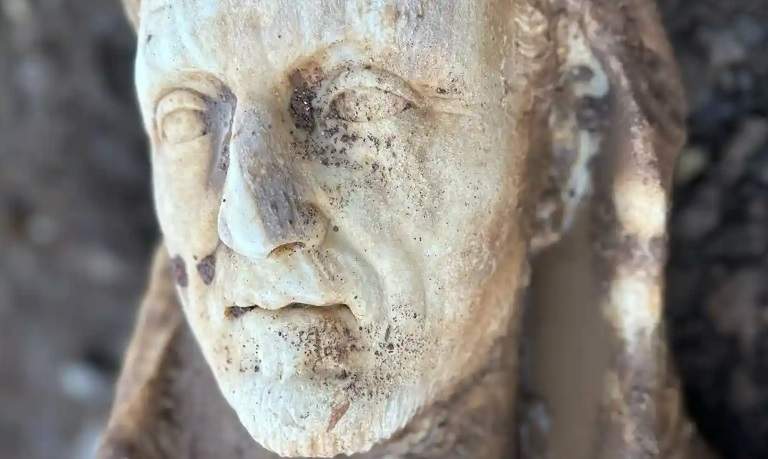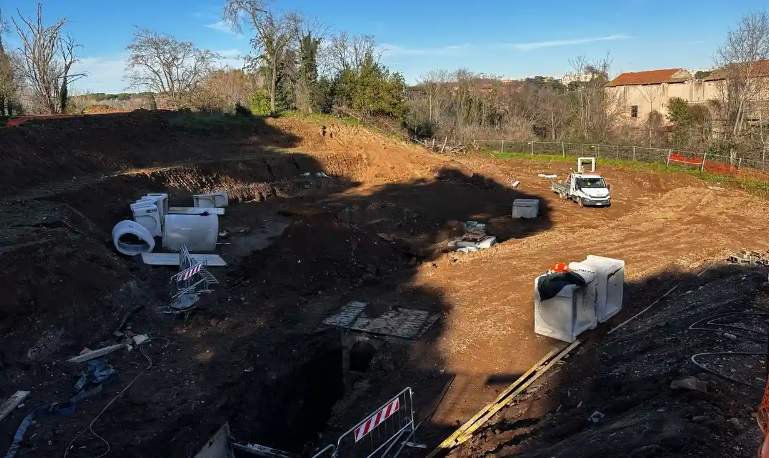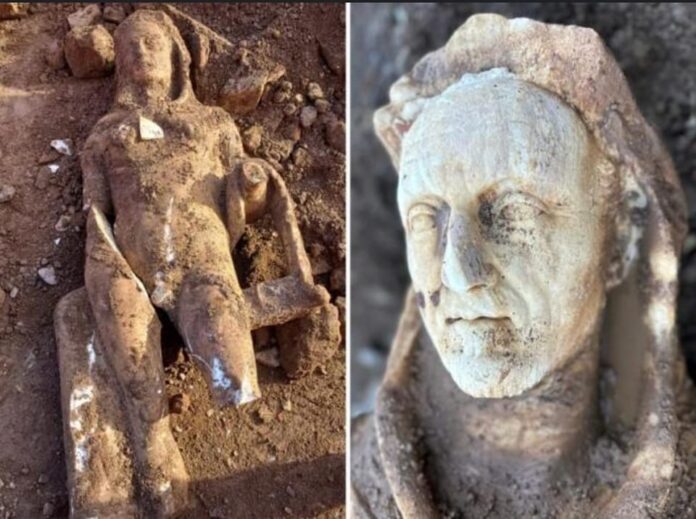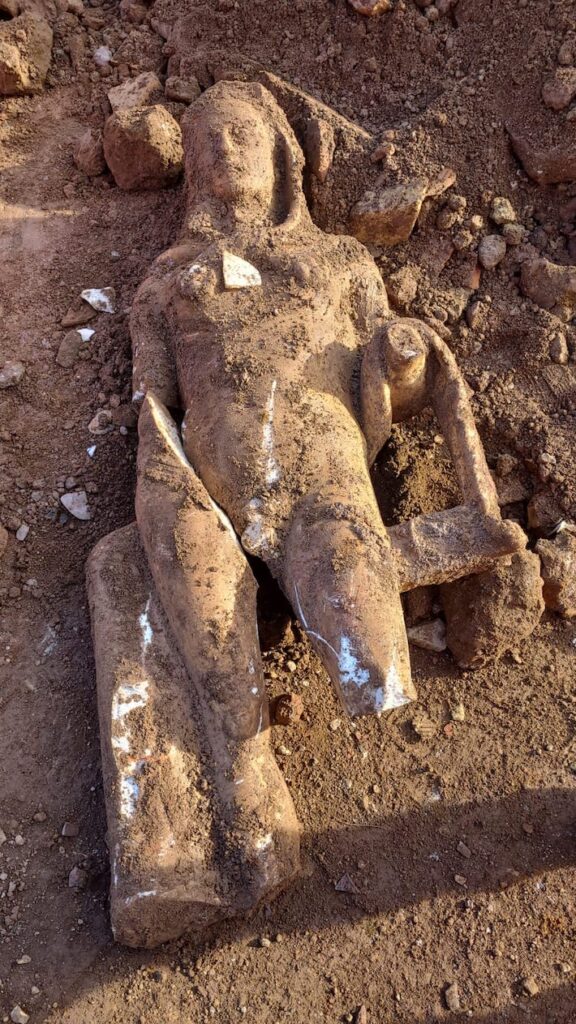A life-sized marble statue of a man wearing a lion skin and carrying a club was recently unearthed during the construction works of a sewer line in the Appia Antica Archaeological Park.
Discovery and Initial Observations

The statue, adorned with the skin of the Nemean lion, initially suggested a resemblance to Hercules. However, upon closer inspection, the facial features do not match the typical iconography of the mythological hero. As Francesca Romana Paolillo explained to Corriere della Sera, the statue represents a figure dressed as Hercules, not Hercules himself.
Location and Condition

The remarkably well-preserved statue was found beneath a collapsed section of an older sewage pipe and adjacent to the Tomb of Priscilla. The positioning suggests that the statue was not in its original context, potentially having been displaced during the construction of the old sewer line in the 19th century.
Early Analysis and Historical Connections

Archaeologists face challenges in determining the age of the statue due to the lack of stratigraphic information. Since the statue was likely thrown into the soil layer when the old sewer line was constructed, it does not provide clear contextual clues. To date the statue accurately, archaeologists must compare it with similar artefacts.
Initial analyses have revealed a potential connection between the statue and Emperor Gaius Messius Quintus Traianus Decius, commonly known as Decius Trajan, who ruled from 249 to 251. This similarity provides a promising lead for further investigation and dating of the statue.
The discovery of this statue adds a fascinating piece to the historical puzzle of the Appia Antica Archaeological Park and offers new insights into the artistic and cultural expressions of the period.
